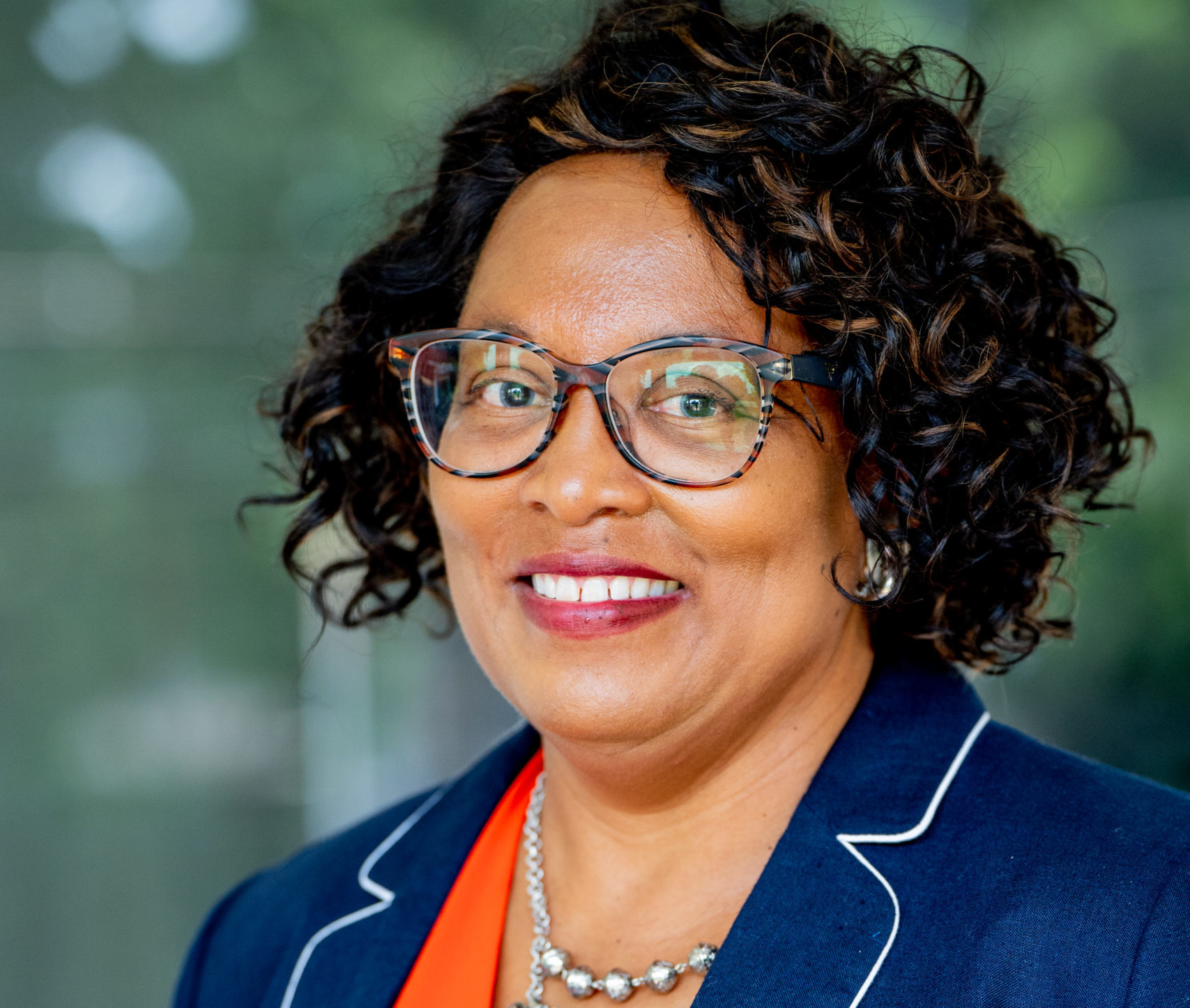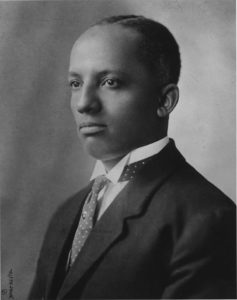Black History 24/7


By Dr. Barbara McCaskill •
It’s that time of year again. The time to savor and stand in awe of Black people’s achievements in this country against impossible odds, to assess the work that remains undone. How far have we come? What challenges and dangers still loom? It’s also that time for grumblings of annoyance and discontent. Why dedicate merely one month — the shortest one to boot! — to explore the scope of centuries? Do we overemphasize African Americans descended from enslaved persons, to the detriment of African, Caribbean, Afro-Latinx, and Black Pacific Islander immigrants who entered the US as free people and of their own volition?
It’s been easy to lose track of what Black History Month meant to the historian and scholar who launched it, Dr. Carter Godwin Woodson (1875-1950). Born to enslaved parents in Virginia, Woodson was only the second African American to earn a doctorate at Harvard University, after the sociologist and NAACP co-founder Dr. W. E. B. Du Bois (1868-1963). Black historians in Woodson’s day were excluded from joining white faculty in conferences of the American Historical Society, so in 1915, he established the Association for the Study of Negro (now African American) Life and History. In 1926, he originated Black History Week.
The week was pitched foremost to Black children and teachers in the racially segregated, under-resourced schools that Jim Crow policies mandated. The lessons they learned would examine, yes, a US history of slavery and immiseration, but also the achievement and genius that flourished in the Diasporic African world and influenced global cultures before and during transatlantic slavery, through Emancipation, Reconstruction, and the twentieth century. The humanities and arts framed and foregrounded the week. Dramatic productions, art exhibitions, musical recitals, dance performances, films about Black cowboys and anti-lynching crusaders, and literary recitations entertained audiences of all ages, even as they educated them about such innovators as the poet Paul Laurence Dunbar (1872-1906), whose “Sympathy” inspired the title of Maya Angelou’s famous memoir I Know Why the Caged Bird Sings (1969); and the African American and Native American sculptor Mary Edmonia Lewis (1844-1907), who was recently commemorated on a US postage stamp.
Black History Month as it is now called, celebrated since 1970, expresses the urgency of making visible how African American voices and perspectives too often have been silenced, downplayed, stereotyped, or erased by national narratives of identity, productivity, and citizenship. Woodson chose February to honor the births and friendship of Frederick Douglass and Abraham Lincoln, a Black man and a white man, one born enslaved and one born free. Their opinions about African Americans at times diverged and conflicted. Woodson thus invited all Americans to ponder the costs of such distortion and exclusion to all of us, and the benefits we gain by thinking capaciously about what America is and has been: multi-voiced and messy.
It’s enough for a lifetime of lessons. Why not begin where you are, constructing your own examination of African American history, life, and culture? Where were such vanished Black Athens communities as Linnentown, the Bottom, and Lickskillet? How do their stories endure in books by Black Athenians such as Hattie Thomas Whitehead’s Giving Voice to Linnentown: A Memoir (2021) and Michael L. Thurmond’s A Story Untold: Black Men & Women in Athens History (2001; 2019)? What people and places are painted on the Hot Corner mural on 133 East Washington Street installed by Elio Mercado and Broderick Flanigan? Select a book to read about “Historical Perspectives” or “Black Lives” from the award-winning University of Georgia’s Press’s curated list on Racism and Anti-Blackness. Study in one of the Main Library’s rooms named for the fugitives from slavery and married couple, William and Ellen Craft (1824-1900; c. 1826-c. 1891). Ponder that we have no photographs of them together — Ellen looked like a white woman, and William was much darker in complexion — possibly because of taboos and laws against interracial marriage. Attend a virtual or in-person humanities, arts, or cultural event from the list below. It includes Athens’ own ASALH, one of three Georgia branches (with Atlanta and Savannah) of the history organization that Woodson founded back in 1926.
It happens at this school and in this city — Black history — all year long.
Dr. Barbara McCaskill is professor of English and associate academic director of the Willson Center.
Campus and community events during Black History Month
Feb. 2, 2 pm • Open house for present and prospective students in Institute for African American Studies • 314 Park Hall • Contact Chera Jo Watts at cheraw@uga.edu
Feb. 3, 5 pm • “The Linnentown Project, with Hattie Whitehead” • Myers Hall Programming Room
Feb. 15, 3: 30 pm • Athens-Clarke County Library: “Introduction to the Freedmen’s Bureau” • Online
Feb. 16, 4 pm • Willson Center Global Georgia Lecture: Dr. Olúfẹmi O. Táíwò – “Reconsidering Reparations” • Online
Feb. 17, 12:45 pm • Dr. Shawnya Harris – “Made Visible: Collecting and Curating Black Artists at the Georgia Museum of Art” • 101 LeConte Hall
Feb. 17, 4 pm • Athens-Clarke County Library Book Club: From the Desk of Zoe Washington • Athens-Clarke County Library, Storyroom
Feb. 19, 3 pm • Willson Center-Penn Center Conversation: Heirs’ Property • Penn Center, St. Helena, SC (Will be recorded and made available online)
Feb. 19, 7:30 pm • Branford Marsalis Quartet • Hugh Hodgson Concert Hall, UGA
Feb. 22, 3 pm • 22nd Annual Mary Frances Early Lecture: Chancellor Robert J. Jones, University of Illinois at Urbana-Champaign • Mahler Hall, Georgia Center for Continuing Education
Feb. 23, 2 pm • Open house for present and prospective students in Institute for African American Studies • 314 Park Hall • Contact Chera Jo Watts at cheraw@uga.edu
Feb. 23, 7 pm • Panel Discussion: “African American Visual Artists in Athens” • Athens-Clarke County Library, Appleton Auditorium
Feb. 24, 3 pm • Dr. John W. I. Lee – A Georgian in Greece: Exploring the Life of John Wesley Gilbert (1863-1923) • Online
Feb. 24, 7 pm • Athens-ASALH Black Health and Wellness Virtual Panel • Check ASALH Facebook page or contact Prof. Emerita Freda Giles at fsgiles@uga.edu
Feb. 25, 7:30 pm & Feb. 26, 2:30 pm • Dance Concert to Celebrate History of Africa and the Diaspora • New Dance Theatre, UGA Dance Department • Contact Prof. Jason Aryeh at Jason.Aryeh@uga.edu
Black History Month Programming at Georgia Museum of Art
Black History Month Programming in Athens
